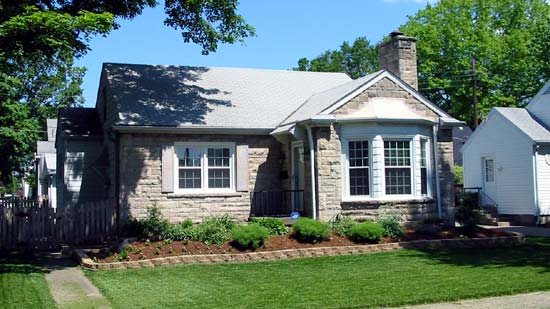Inheriting a property can be both a blessing and a challenge. On one hand, it’s a valuable asset; on the other hand, the burden of maintaining or upgrading it may seem overwhelming. In this article, we’re going to look at 10 tips for maximizing profit from inherited properties to give you some food for thought to help you in this difficult time.

Many people who inherit homes find themselves unsure of the best way to maximize profit, especially if the property is outdated or in disrepair. The good news is that it’s entirely possible to increase the value of an inherited property without sinking a ton of money into major renovations. The key lies in smart strategies that highlight the property’s potential while minimizing expenses.
10 Tips for Maximizing Profit from Inherited Properties
Here’s a guide to maximizing profit from inherited properties without making major investments.
1. Declutter and Clean the Space
The first and most straightforward step to enhancing the value of an inherited property is simply cleaning and decluttering. This might seem basic, but first impressions matter. A clean, uncluttered home feels more inviting and helps potential buyers or renters envision the possibilities.
If the home has been sitting empty or hasn’t been maintained regularly, hiring a professional cleaning service might be worth the investment. In addition to basic cleaning, consider removing old, bulky furniture and any personal items left behind. A blank canvas allows people to imagine their own lives in the space and boosts the perceived value of the property.
2. Improve Curb Appeal
Curb appeal plays a huge role in how a property is perceived. A well-maintained exterior gives buyers or renters confidence that the home has been cared for, even if they haven’t seen the inside yet. You don’t need to invest heavily in landscaping or new siding to make a difference. Small, budget-friendly updates can go a long way:
- Mow the lawn and trim bushes.
- Repaint the front door or window trim.
- Add a few potted plants or flowers near the entrance.
- Sweep walkways and ensure driveways are clean.
- Fix any minor cracks or visible damages in fences or steps.
These simple changes help give the home a fresh, welcoming look that can increase its market appeal without costing much.
3. Consider Cosmetic Touch-ups
If you’re interested in maximizing profit from inherited properties the large expenses can potentially sink the ship. But even cosmetic improvements can make a big difference in how a property is valued, and many of them don’t require huge investments. Some easy upgrades to consider:
- Paint: A fresh coat of paint, especially in neutral tones, can make rooms feel bigger, brighter, and newer. It’s one of the most cost-effective ways to update a home’s interior.
- Lighting: Replace old, outdated light fixtures with more modern options. Brighter rooms feel more inviting, and good lighting makes the home appear more modern.
- Flooring: If the home has older carpets or scratched hardwood, consider replacing or refinishing. In some cases, simply having carpets professionally cleaned can make a huge difference.
Hardware and fixtures: Swapping out old doorknobs, cabinet handles, and faucets for modern, sleek alternatives is an inexpensive way to give rooms a more updated look.
These minor changes can give the home a more contemporary feel without requiring extensive renovations.
4. Get a Home Inspection
Even if you’re trying to avoid major repairs, it’s a good idea to get a home inspection before putting the property on the market. While this may seem counterintuitive, an inspection can help identify potential deal-breakers during a buyer’s inspection. Addressing small, inexpensive issues upfront can help you avoid the buyer asking for larger concessions later on.
For example, fixing small plumbing leaks or addressing minor electrical problems can cost a fraction of what a buyer might request if they find the same issues. Proactively handling these items ensures you maintain control over the selling process and negotiations.
5. Consider Selling As-Is
In some cases, especially when the property needs significant work, selling a house “as is” could be the best strategy for maximizing profit from inherited properties. By marketing the property correctly, you can attract buyers who are specifically looking for a home with “potential” otherwise known as a fixer-upper.
There are plenty of investors and buyers who prefer homes they can renovate or flip themselves. If you position the inherited property as a home with great bones, located in a desirable neighborhood, or with features that stand out (like a large yard or proximity to schools), you can still command a competitive price without making significant investments.
The key here is to price the home appropriately. An agent with experience selling inherited or as-is properties can help you determine the best price to attract buyers without underselling the property.
6. Rent Out the Property
If selling isn’t the right option for you right now, renting out the inherited property can generate consistent income while allowing you to hold onto it as a long-term investment. This works especially well in markets where property values are expected to rise, giving you time to decide your next steps while still benefiting financially.
Before renting, you’ll want to ensure the home meets local rental requirements. Even if you don’t want to invest in major upgrades, there are often minor fixes or safety checks that need to be done, such as ensuring smoke detectors work and doors have functioning locks.
Consider the market for renters in your area and set the rent competitively to attract quality tenants. Whether you manage the property yourself or hire a property management company, renting can be a valuable way to maximize profit from an inherited home.
7. Explore Seller Financing
Another strategy to maximize profit without major investment is to offer seller financing. In this scenario, you act as the lender and offer the buyer a loan for the home. The buyer makes regular payments to you instead of a traditional lender, giving you the potential to earn interest on top of the home’s sale price.
This can be especially attractive if the home requires repairs or if buyers are having trouble securing traditional financing. By offering seller financing, you open up your pool of potential buyers and can potentially sell the home for a higher price than you might otherwise.
Seller financing does come with some risks, as you’ll need to ensure the buyer can make their payments, and it requires more involvement than a traditional sale. However, it’s a great option to consider if you’re willing to hold onto the loan for a while in exchange for additional profit.
8. Stage the Home for Buyers
Staging the property, either physically or virtually, is another low-investment way to increase its appeal. When buyers walk into a well-staged home, it helps them visualize how they might use the space, making it easier for them to see themselves living there.
If the inherited home still has old furniture or clutter, consider removing everything and bringing in temporary furnishings. Virtual staging can also be effective, where digitally enhanced photos show the home with modern furniture and decor. Staging costs vary, but they are generally much lower than major renovations and can significantly speed up the selling process while boosting the final sale price.
9. Leverage the Location
One of the most important factors in real estate is location, and this can be your biggest selling point. Even if the home itself is outdated or in need of repairs, highlighting the advantages of its location can help attract buyers.
If the property is in a desirable neighborhood or close to amenities like good schools, parks, and shopping centers, make sure to emphasize this in your marketing. The location alone can add significant value to the property and may allow you to sell at a higher price without needing to invest in costly renovations.
10. Work with a Real Estate Professional
While this article is about maximizing profit without major investments, it’s worth noting that there are benefits of working with a real estate agent. Depending on the agent, you could come out ahead if the agent’s expertise and hard work are first-rate. An experienced agent will know the local market, understand how to price the property and help you decide which small improvements are worth the cost.
Real estate agents can also help with marketing the property, negotiating with buyers, and ensuring the sale goes smoothly. Many agents will offer flexible commission options, especially for homes that don’t require a lot of hand-holding.
Maximizing profit from an inherited property doesn’t require sinking thousands into major renovations. By focusing on decluttering, making minor repairs, improving curb appeal, and highlighting the home’s best features, you can boost the property’s value without breaking the bank. The key is to understand what improvements matter most to buyers in your area and use smart strategies to showcase the potential of the home.



